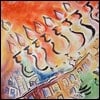
Hanukkah, a.k.a. Chanukah, is one of the most well-known Jewish holidays, right up there with Passover and the High Holidays. What is less well known is how to spell it, or how to pronounce it.
Ready to get to the heart of the Hanukkah vs. Chanukah debate?
The Hebrew name of this holiday is חנוכה, which is pronounced kha-noo-kah. It is never pronounced as tcha-noo-kah.
“H” or “Ch”?
The first consonant, the ח, is pronounced as /x/ in Ashkenazic tradition. This phoneme, which sounds like someone clearing his throat of phlegm, does not exist in standard English.
Thus, several approaches have been adopted.
The most common English spelling uses “h,” which is not perfect, but makes for an eminently pronounceable word. In addition, in Sephardic tradition the ח is pronounced as /ḥ/, which sounds close to /h/. Thus Sephardic Jews, as well as many non-Jews, prefer “Hanukkah.”
Ashkenazic Jews, however, traditionally favor “Chanukah.” This is because “ch” has long been used to represent the /x/ in innumerable names (Menachem), holidays (Pesach), and concepts (Chabad), like it is used in German. Thus, in traditional, observant circles, “Chanukah” is more familiar and consistent with how many other Hebrew and Yiddish words are treated.
One “K” or Two?
In Hebrew, some consonants have a diacritic (dagesh) placed in their center, which tells us to pronounce them as plosive instead of fricative. In simple English this means that, for example, ב is pronounced as /v/, but when it has a dot in its center (בּ), it is pronounced as /b/. In certain grammatical contexts the dagesh also indicates that the sound of the letter is geminated (doubled), similar to the “kk” in “bookkeeper,” although most Ashkenazic and some Sefardic reading traditions don’t maintain this distinction.
Some purists maintain that when these sounds are transliterated into English, these letters should be doubled, to reflect this. Thus “Shabat” becomes “Shabbat,” and “Hanukah” becomes “Hanukkah.”
This nuance is, for the most part, not recognized by your average Jew, who sees no practical reason to add a “k” to his favorite wintertime holiday, and is perfectly satisfied to refer to it as Chanukah.
One Final Option
Yiddish academics prefer to spell this holiday as Khanike, which (they argue) most accurately reflects how it is pronounced among Yiddish-speaking Jews.
However, unless you are writing out an entire Yiddish sentence in English characters, this spelling is as confusing as it is uncommon.
Common Ground
No matter how you pronounce this holiday, all can agree that it is to be celebrated by lighting the menorah (or should that be a hanukiah?) nightly, singing praises to G‑d, and expressing our gratitude for His kindness.






